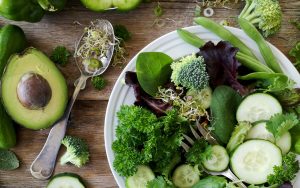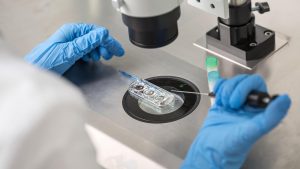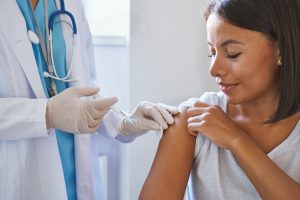While NSW grapples with the reality of lockdown, it can be all too easy to fall into unhealthy habits, some of which could have potentially detrimental effects on fertility.
Reduced sperm quality can be linked to dietary and lifestyle factors. Diet lacking in essential vitamins such as zinc, vitamin D and antioxidants, coupled with excessive alcohol use and smoking can reduce the quality of your sperm and increase DNA damage.
Studies have shown that elevated DNA damage in sperm can result in poor fertilisation, poor embryos quality and increased miscarriage rates.
During lockdown, is there anything you can do to improve your sperm quality? The answer is absolutely.
By making some healthy changes to your diet and lifestyle, it can be a great way to help improve the quality and quantity of your sperm.
1. Quit smoking and limit alcohol intake
It is widely known that smoking and excessive alcohol consumption have detrimental effects on the health of both males and females.
It can also have a negative impact on fertility, and an adverse effect on the IVF outcome of patients, resulting in a reduced ongoing pregnancy and delivery rate.
2. Improve your diet
Making some healthy changes to your diet can be a great way to help improve the quality and quantity of your sperm.
Zinc has been shown to boost sexual health and improve sperm motility and can be found in foods such as oysters, mussels, and lobster.
Increasing your intake of antioxidants can also help to improve your sperm quality, research showing that foods such as nuts, berries, spinach and dark chocolate are a fantastic weapon against free radicals that damage sperm.
3. Make sure you get enough vitamin D
People usually become deficient in vitamin D during the winter months because they don’t go outside as often, and throughout lockdown, you may be at an even higher risk. We get a good portion of vitamin D from UV light, but we can still get a reasonable amount from our diet.
Fertility First has recognised the importance of sufficient vitamin D levels in both our male and female patients trying to conceive.
Our clinic has routinely tested the vitamin D levels in all our patients as part of our preliminary assessment and has been doing so for over 10 years. Vitamin D has been shown to increase testosterone levels and not only improve sperm quality, but it also has a significant impact on female fertility. Foods rich in vitamin D include oily fish (salmon and tuna), cheese, eggs, yoghurt and mushrooms.
For more information on foods that can help improve your health and the quality of your sperm, please refer to some of our additional articles we’ve written over the past number of years.






